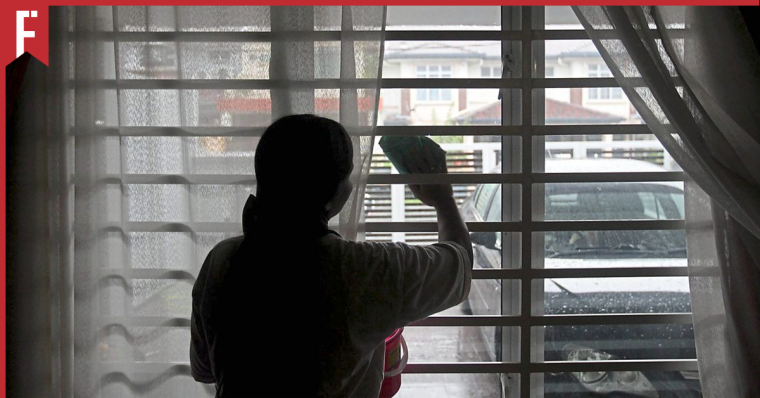
When I was in Standard One, I asked my maid to sign my report card for me.
Why? I didn’t want my mother to see it and scold me for my bad marks. But then I remembered something; my teacher told us to get a relative to sign our report cards. So I made a sneaky plan. If I asked our maid to sign it, I wouldn’t have to show my marks to my parents at all!
In hindsight, it was a dumb idea. But I sure felt smart as I handed the report card to our (understandably confused) maid.
“Are you sure this is for me?” she asked.
Desperate to avoid letting my parents see my marks, I begged, pleaded and cajoled. Unfortunately, it was to no avail. Instead of signing my report card, she simply handed it over to my mother once she came home from work.
As you might expect, my mother was furious. And not just about my marks.
“You asked the maid to sign?!” she scolded me. “Why? Your own parents not good enough, is it? You want to go and stay with her family in Indonesia?”
I remember being completely shocked and confused. Our maid… had another family? She wasn’t related to us? But then why did she stay in our house and take care of us all day?
In the years since, my family has hired several different maids to take care of the home while they worked. Yet I have never been able to forget that moment with our very first maid. That realisation, that understanding that all of our maids had their own lives, interests and loved ones… it’s something that stuck with me ever since that day.
Unfortunately, it’s a lesson that not everyone seems to have learned.
Maids in Malaysia VS Maids in the UK
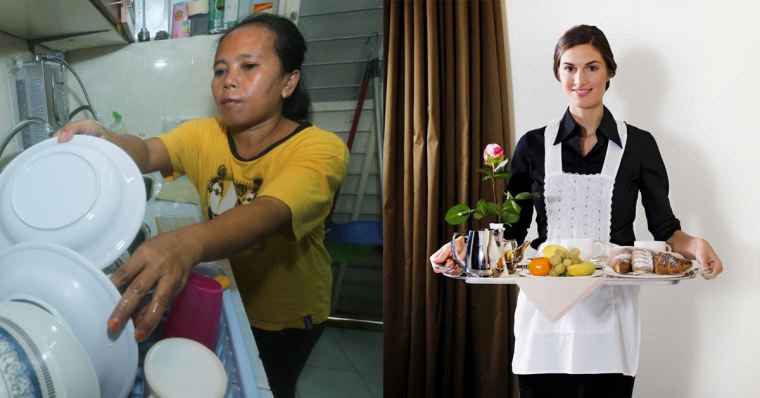
When I was younger, I remember that a lot of my friends had maids working in their homes.
However, when I was a teenager, my family moved to the UK. It took a while for us to settle in, but I quickly realised that something was very different — we didn’t have a maid anymore. In fact, none of my new friends, neighbours or classmates had a maid. When I asked about it, they all looked at me like I’d gone nuts.
“A maid?” one of them said. “What, do you think we’re rich or something?”
Culturally speaking, the way maids are treated in UK and Malaysia is like night and day. Over here, I’ve found that people tend to ignore or even look down on their maids. We often see them as unskilled or even uneducated, which is why so many Malaysians treat their maids badly.
The British, on the other hand, see it as a professional job and treat their maids accordingly.
Their salaries are also on a completely different scale. According to Glassdoor, the average salary for a maid living in London is around £22,625 (RM128,844) a year.
This translates to about £1,885 (RM10,730) a month!
Honestly, how many of you would be willing to sign up for a job with that kind of salary? I know I would.
Meanwhile, in Malaysia…
In 2015, Indonesia set an RM900 minimum monthly pay for domestic helpers in Malaysia. However, over the past few years, the price has gone up by quite a bit.
According to Payscale.com, the average maid in Malaysia in 2021 is now paid around RM1,616 a month. This represents an increase of about 79.5%.
Why Are Maids Suddenly So “Expensive”?
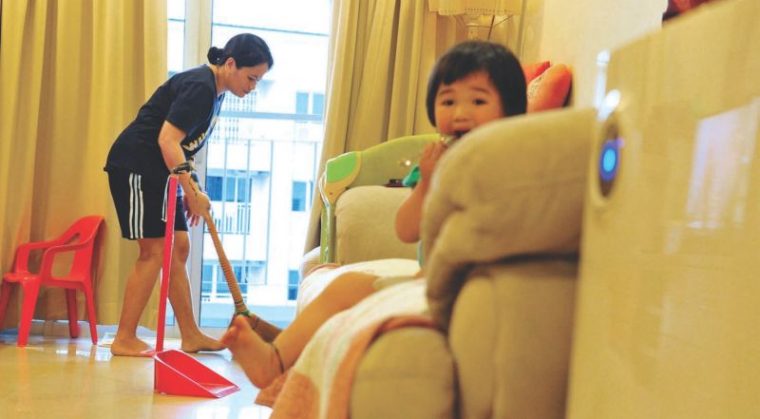
1) The Pandemic
As you might expect, it’s hard for Indonesian maids to come to Malaysia when all the borders are closed. Even though international travel is slowly opening back up again, the costs involved are eye-wateringly expensive.
For Penang-based job agency owner Chris CT Chan, the amount of money needed to bring a maid into Malaysia is “absurdly high”.
“The current cost to get a maid for prospective employers is about RM20,000 but with the quarantine and Covid-19 prevention costs, it can go higher,” he told the Star.
2) The Government
In 2011, Malaysia and Indonesia signed a Memorandum of Understanding (MoU) which provided guidelines for the recruitment and protection of Indonesian domestic workers in Malaysia.
That MoU expired on 30 May 2016. However, despite years of negotiations, a new MoU has yet to be signed even to this day (6 January 2022)! The situation has left employment agencies scrambling as there is no clear directive or procedures regarding new domestic workers.
“We are still in the dark, we don’t know anything until now,” admitted Association of Employment Agencies Malaysia vice-president Suresh Tan. “Will it be a manual or online application? Medical checkups, Covid-19 quarantine regulations and tests, all of these need to be addressed.”
3) Abusive Employers
We’ve all heard the stories. Every month, there seems to be another horror story of maids being abused or even killed by their Malaysian employers. It’s sickening, but at this point, we Malaysians are so used to it that we just shake our heads and go on with our lives.
However, the thing that a lot of us seem to forget is that people in Indonesia can see the news too.
Here are just a few of the incidents that you might have read about in December 2021:
- An arrest warrant was issued for a senior citizen accused of murdering her Indonesian maid. She failed to turn up to court despite repeated warnings, and her daughter admitted that she was aware of the court date and deliberately chose not to go.
- A former Masterchef Malaysia finalist and her husband were charged for murdering their domestic worker in their condominium. The couple were arrested a day after they returned home from a holiday and “discovered” their maid lying on the bathroom floor.
- An Indonesian maid who hasn’t been paid for 12 years ran away from her abusive “Tan Sri” employer. Her former employer’s son immediately filed a counter claim to try to force her to pay RM500 for “failing to give a 14-day termination notice”
Bear in mind that this is all just from one month. How many other maid abuse cases do you think just gets swept under the rug every month?
She’s Your Maid, Not Your Slave
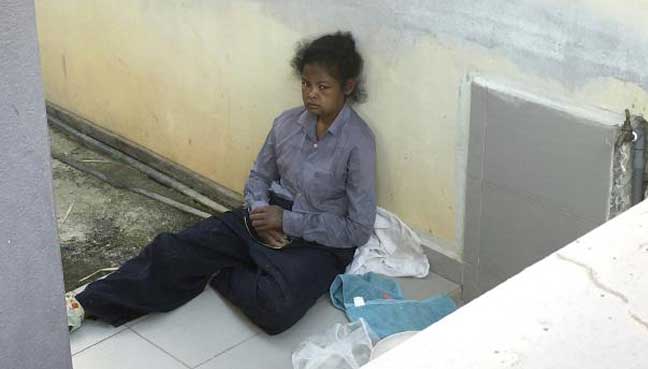
While some families treat their maids well, others have behaved like literal psychopaths. Malaysians have scalded their maid’s skin using an iron, splashed them with boiling water, pulled out their teeth with sharp objects, whipped them with belts and worse.
In 2015, Indonesian-based NGO Migrant Care reported that an estimated 1,000 Indonesian maids were being abused every year in Malaysia. And that’s just the Indonesians!
Back in 2011, the Cambodian government straight up banned their maids from working in Malaysia due to “numerous complaints of abuse” that included physical and sexual abuse, unhealthy meals, forced overtime and unpaid wages.
Considering this horrific reputation, is it any wonder why our neighbouring nations are becoming more reluctant to send their citizens to work in Malaysia?
Before Malaysians start complaining about the rising costs of maids, perhaps we should ask ourselves if we would be willing to work under such conditions. More importantly, would we be willing to send our wives or daughters to work in a country where they might get abused or even murdered?
We Need to Change the Way We Treat Our Workers
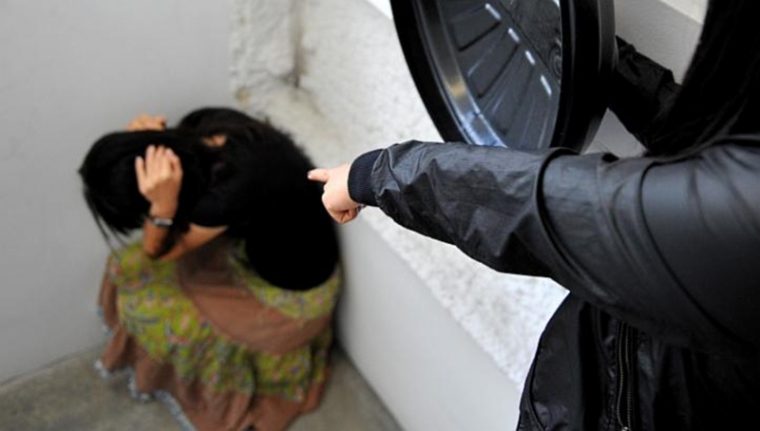
Over the past few years, our world has been changing rapidly, especially when it comes to work. The days when we could import thousands of poor, desperate foreign women and force them to work for a pittance are long gone — and good riddance.
And before you start crying about how “nobody wants to work anymore”, remember that this isn’t the 19th century anymore. Nobody wants to work for an abusive boss, especially if you’re too cheap to even pay a living wage.
In order to survive today’s modern economy, Malaysian families and employers need to stop treating their workers like their personal slaves. Abusive behaviour like withholding pay, imprisonment, beatings, etc. isn’t just morally wrong; it’s against the law.
If you’re the type of person who stubbornly refuses to accept that things are no longer the way they used to be in the pre-pandemic days, then you don’t get to complain when you can’t find anyone interested in working for you.
For more information about how the modern workplace is changing, be sure to check out:
“We’re A Family”: Here’s Why Companies Should Stop Saying This








